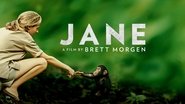Diagonaldi
Very well executed
Erica Derrick
By the time the dramatic fireworks start popping off, each one feels earned.
Ginger
Very good movie overall, highly recommended. Most of the negative reviews don't have any merit and are all pollitically based. Give this movie a chance at least, and it might give you a different perspective.
Bob
This is one of the best movies I’ve seen in a very long time. You have to go and see this on the big screen.
pmpmn9
It's well worth watching and I highly recommend it. I've known about Jane Goodall's work for many years. What I didn't realize all this time was that Jane wasn't a researcher or even a student when she went to live in Gombe in 1957 to study the chimpanzees, she was a 26-year-old secretary with a love of animals. That's all. She is a perfect example of how the seemingly most unqualified person can actually be the best one for a job. It took five months for her to even get close to the chimpanzees. Someone else might not have or given up. She compiled tons of data. Someone else might not have been as thorough. Tragedies happened and her personal life threatened her commitment, but she never gave up, always went back, and this ground-breaking research is still in progress over 60 years later. That's dedication. Well done, Dr. Goodall!
Howard Schumann
In 1960, primatologist Jane Goodall, the twenty six-year-old secretary of paleontologist Louis Leakey, was chosen to conduct research in Africa for his study of the influence of apes on primitive man. Though she was not a scientist and never attended university, her open mind, love of animals, and the strong support she received from her mother (who accompanied her to Africa) influenced his choice, one that turned out to be a very wise one. Reconstructed from over one hundred hours of footage shot by nature photographer Hugo van Lavick, Jane Goodall's life is brought to the screen in the riveting documentary simply called Jane. Directed by Brett Morgen("Cobain: Montage of Heck"), the film, which combines recent interviews with Jane, now 83, with the archival footage only discovered in 2014, transports us to the Gombe Stream National Park in Northwestern Tanzania, shortly before the country gained its independence from Britain in 1961. As narrated by Goodall from an audio recording of her 1999 book "Reason for Hope: A Spiritual Journey," we witness Jane's groundbreaking research into the behavior of chimpanzees in their natural environment, research that was initially questioned by the entrenched scientific community who said that her findings could not be taken seriously because she was a woman and lacked adequate training. The first person to observe chimpanzees in the wild, Jane was forced to keep her distance until the animals could accept the presence of the "white ape." Supported by the magnificent cinematography of Ellen Kraus and a moving score by Philip Glass, we see a silent Jane searching for observation points in the immaculate solitude of the mountains she grew to love. It was a process that required patience and fearlessness, which Jane tells us came from the fact that she did not know enough to be afraid. Her first important breakthrough occurred when she observed Greybeard, the oldest male chimp, using a twig tool to dig out termites from a brush. The discovery was contrary to the consensus opinion that only humans could use tools and was met with resistance, especially by religious groups.
Though we now know that chimpanzees are among the most intelligent primates and that there is 99% identical DNA between human beings and chimpanzees, the media reported the story of Jane's accomplishments with the usual skepticism. Citing the fact that she gave the animals names instead of numbers, they asserted that it showed her tendency to anthropomorphize them and to over identify with the subjects she was researching. In spite of the critics, Jane received a grant from the National Geographic to continue her work and, though she was initially resistant to the idea, they also sent her a Dutch filmmaker, Hugo van Lavick, to record her work on film. Developing a relationship with Hugo, they eventually married and gave birth to a son they named Grub. It was Jane's observation of the bond between Flo, an older female, and her baby Flint that provided her with some lessons in child rearing, though the bond between Flo and Flint did not end happily. In one troubling incident, after the chimpanzees began to steal bananas from their tent, Jane and Hugo began to supply them to the chimps, hoping this would prevent a more aggressive intrusion. It was a decision that had to be rethought, however, when the animals invaded their tent and stole everything they could get their hands on. Even more distressing was an outbreak of polio among the community and the civil war that broke out between two factions of chimpanzees after the death of one of their maternal leaders, lending irony to Jane's assertion that, "The more I learned the more I realized how much like us they were." Unfortunately, Jane and Hugo began to drift apart when he lost the funding for his work in Gombe and left to photograph wild animals on the Serengeti Plain in Northern Tanzania, one of the natural wonders of the world. Now designated as an engendered species, chimpanzees have already disappeared from four African countries, and are nearing extinction in many others. Millions of chimpanzees used to live throughout equatorial Africa but today there are only 220,000 left in the world, a sad reminder of the increasing degradation of our planet. Thanks to The Jane Goodall Institute, an organization she founded that is dedicated to conservation, she has become an activist, traveling around the world talking about the need to protect endangered species, climate change, and the environment, attempting to build, in Werner Erhard's phrase, "a world that works for everyone."
Joe Stemme
JANE is a simply titled documentary about the life and career of naturalist Jane Goodall. Director Brett Morgen does a very fine job of sifting through hundreds of hours of footage to illustrate his movie. Interviews (both original and period) are layered over the clips to bring her story to life.The plain title is appropriate for Goodall wasn't a scientist by training, but, a secretary who got the attention of renowned paleontologist Louis Leakey (curiously, mentioned little in the doc). Goodall couldn't provide a scientific background, but she convinced him that her lifelong passion for animals would make her a good research assistant. What followed, is one of the greatest studies of animals in nature. Hard to believe today, but her initial expeditions are considered the first in depth studies of primates in the wild - in history. Beginning in the late 1950s and continuing to this day, Goodall and her team have studied chimpanzees in Gomba Tanzania. National Geographic sent photographer Hugo van Lawick (later, her husband) to shoot 16mm film beginning in the early 60s. It is that footage that provides the bulk of the photographic evidence of her studies. Much of the footage had been in vaults, uncatalogued, for decades. Fortunately, those vaults seem to have been well-preserved, for the film looks stunning on the big screen. In fact, some sections of the documentary look so utterly perfect (and capture intimate moments so precisely), that you almost swear it had to be faked! The 60s scenes (which also includes footage Hugo shot in the African Serengeti) are the most fascinating in this rather brief doc (90 minutes). JANE is very much an authorized account. Only a couple of mentions of the controversy in the scientific community about her methods are covered, and only scantily. Still, give credit to Morgen, and Goodall herself, for showing how career driven she was - and remains. It's quite clear that both Goodall and Hugo put their careers above their personal lives (they even bring their baby up in the wilds of Africa rather than return home for a 'normal' upbringing). Morgen also is a bit sloppy with the chronology of the footage including a newspaper account which mentions that she is married - before she even met Hugo in the story-line (oops!). More problematic is Philip Glass' music. One of the great minimalist composers, and the writer of several fine film scores, Glass here tends to overwhelm the largely gentle tone of the doc. Further, Morgen also made the decision to do a full soundtrack to back the footage, the vast vast majority of which is silent. It works for the most part, but, in conjunction with Glass' overbearing music seems out of register. Minor points, but, significant enough.Jane Goodall and her work has been in the public eye so long, that one might feel that she is of the past. But, like the woman herself, JANE makes her very much alive and vital.
blondgod_1999
This is an excellent documentary well worth seeing for those with an interest in Jane and her fascinating life. I would encourage that it be seen in a theater as the footage is spectacular on the big screen and the excellent musical score and sound mix are incredible! A warning-- some of this is quite disturbing and intense (life and death in the jungle) and may trouble some younger or sensitive viewers. However, a sense of awe and admiration at Jane's determination and dedication to her work leave one with a sense of joy. 10/10





